MLOps (Machine Learning Operations) platforms are comprehensive frameworks designed to streamline and automate the process of deploying, managing, and monitoring machine learning models in production environments. As the demand for machine learning continues to grow in industries such as healthcare, finance, and retail,

Discover the top 15 best MLOps platforms
DATABRICKS
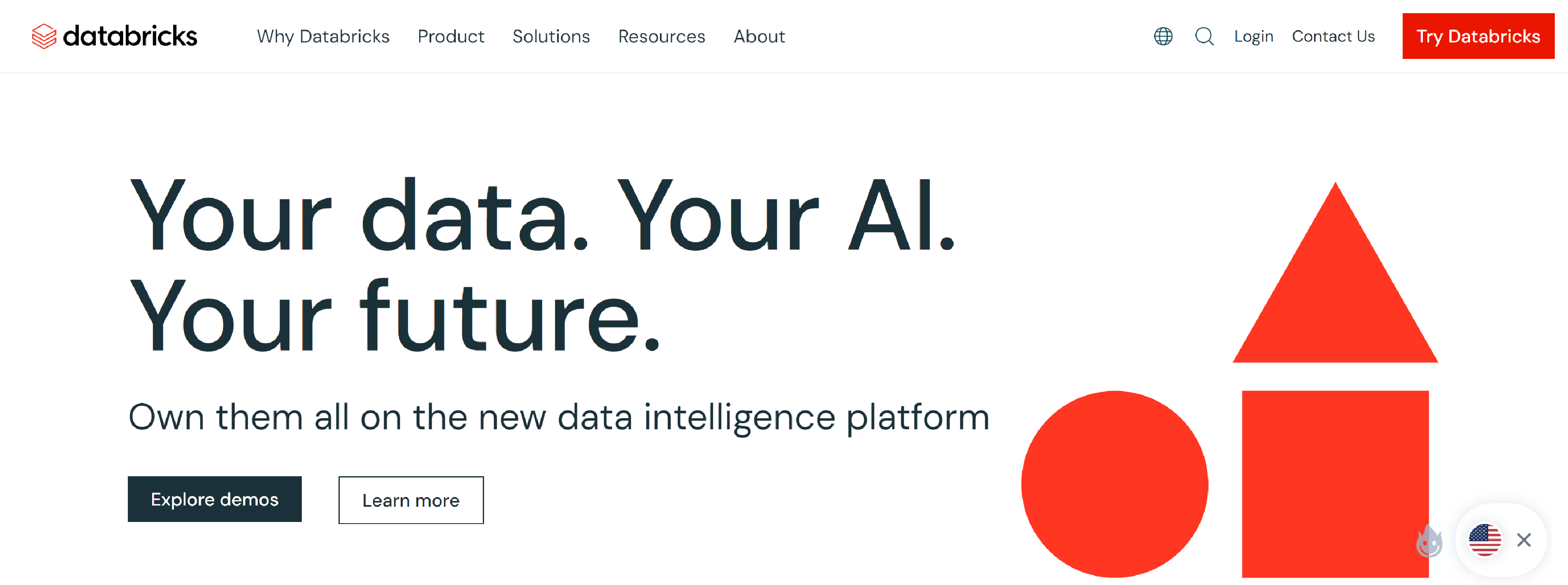
The Databricks Platform is the world’s first data intelligence platform powered by generative AI. Infuse AI into every facet of your business.
- Create, tune and deploy your own generative AI models
- Automate experiment tracking and governance
- Deploy and monitor models at scale
CLOUD.MTS
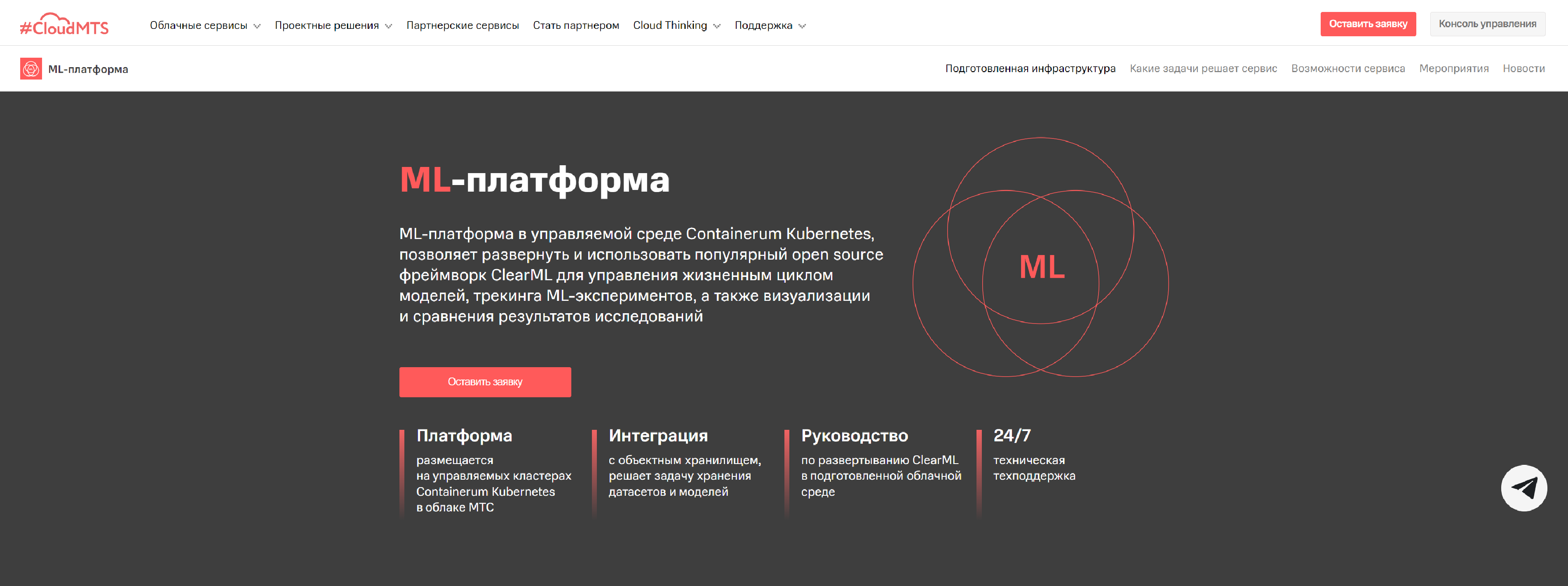
CloudMTS – the ML platform in the managed Containerum Kubernetes environment allows you to deploy and use the popular open source ClearML framework for managing the life cycle of models, tracking ML experiments, as well as visualizing and comparing research results.
- Ensuring high infrastructure availability on the provider side
- Deployment speed and reliability. Cloud solution reduces deployment time from days to minutes
- Assembly of ClearML components (Keycloack, Grafana, object storage, Containerum, PostgreSQL) tested and optimized for high loads
- Easy integration with #CloudMTS development services: Containerum, PostgreSQL, Apache Kafka
DOMINO
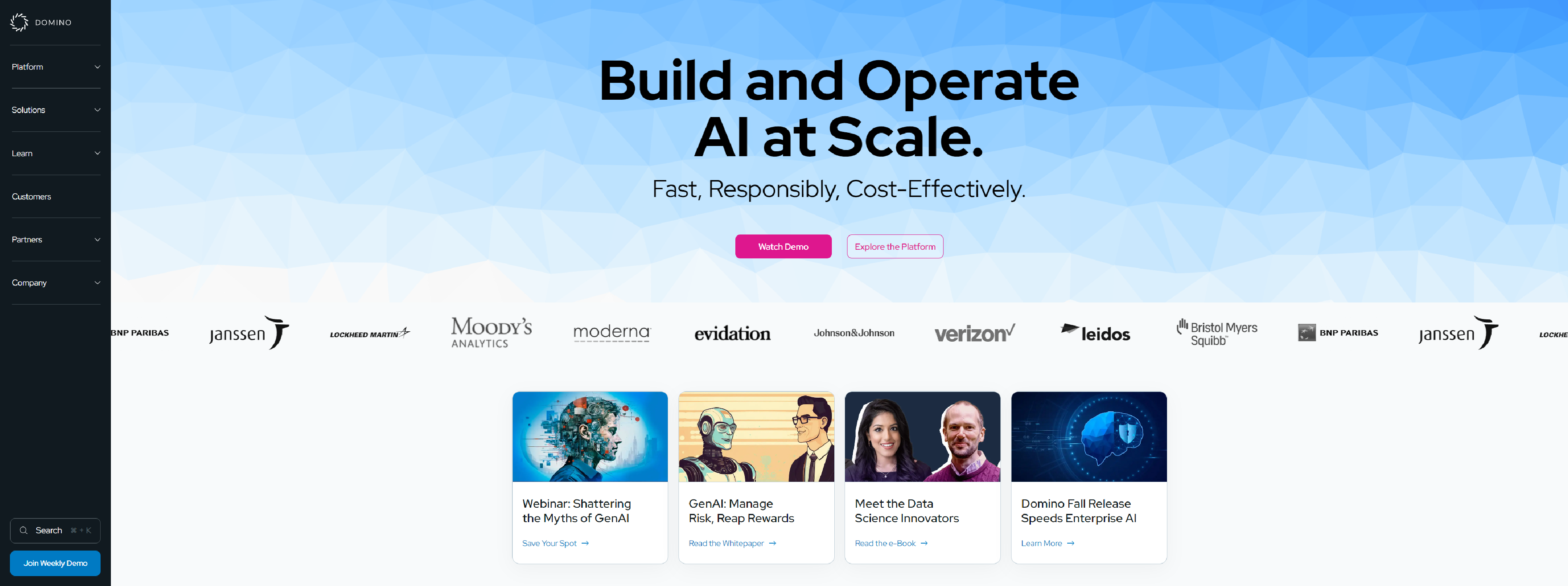
Domino Data Lab accelerates research, speeds model deployment, and increases collaboration for code-first data science teams at scale, all in one platform.
- Innovate faster and reduce cost with instant access to managed infrastructure
- Speed up model development with self-serve development environments, collaboration and reproducibility
- Accelerate time to value from AI by quickly and safely productionizing data science projects
IGUAZIO
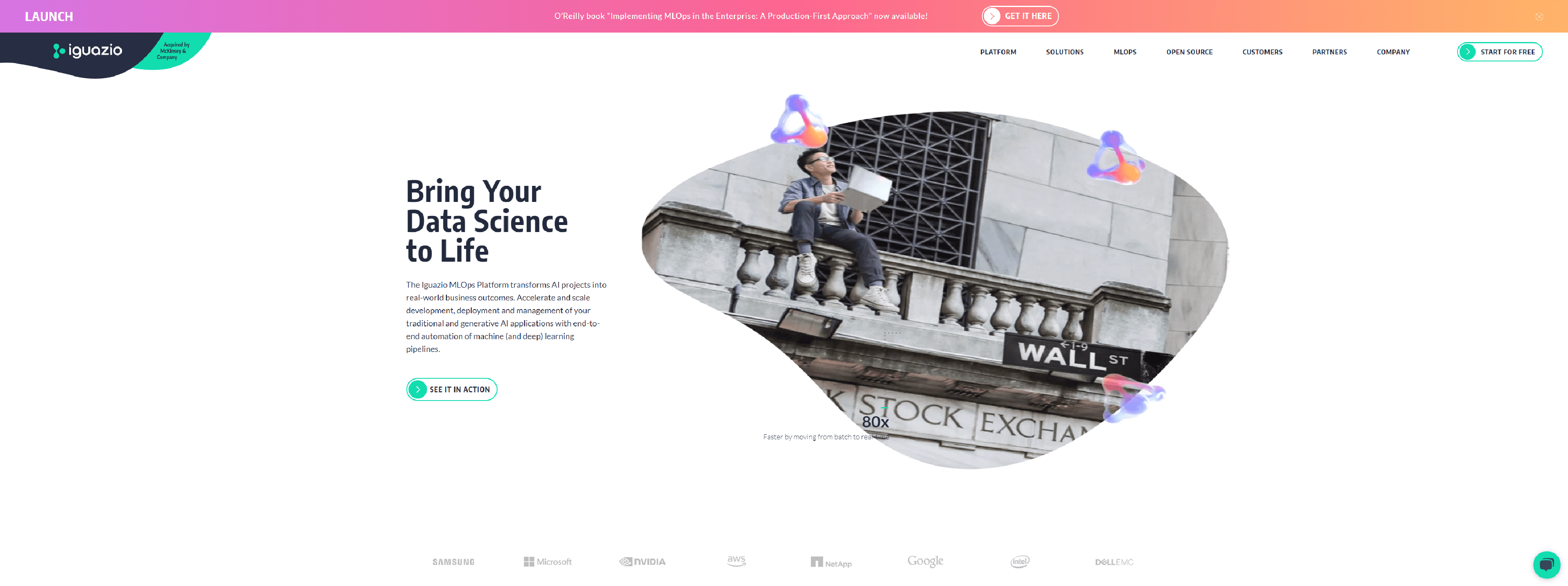
The Iguazio MLOps Platform automates your machine learning pipeline, transforming AI projects into real-world business outcomes.
- Ingest Data from Any Source and Build Reusable Online and Offline Features
- Continuously Train and Evaluate Models at Scale
- Deploy Models to Production in Seconds
- Monitor Your Models and Data on the Fly
PROVECTUS
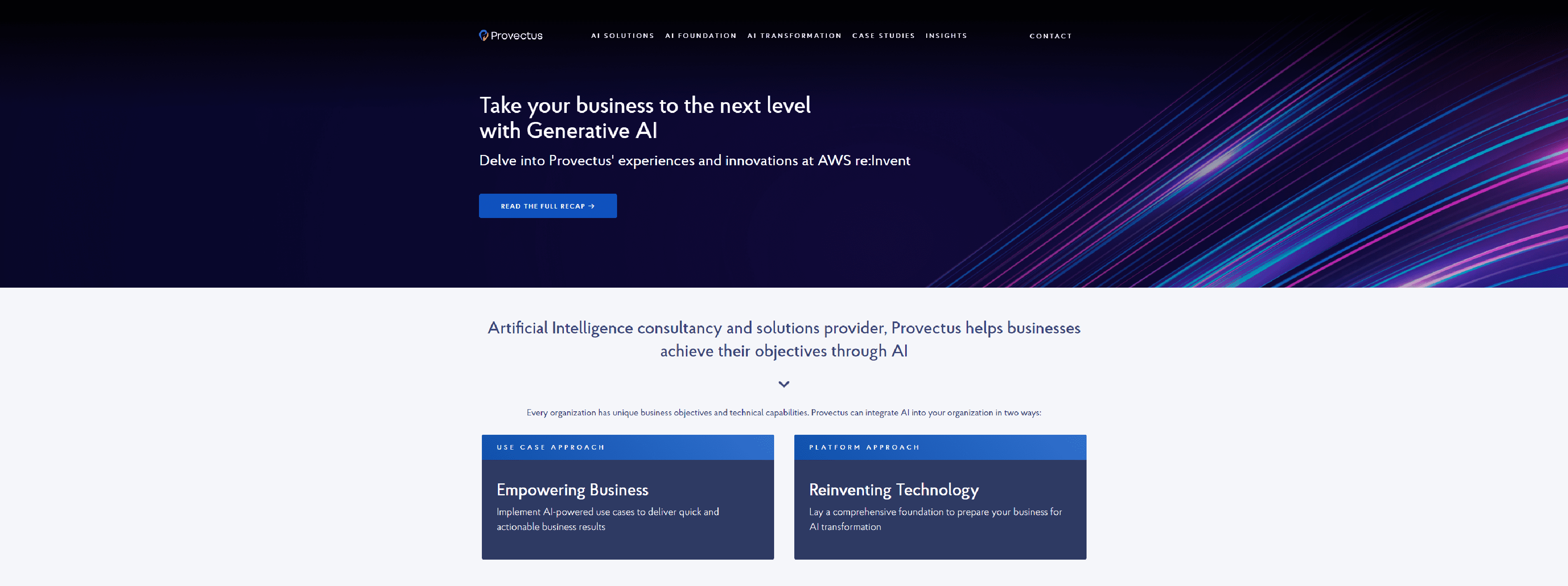
Provectus provides Artificial Intelligence & Machine Learning Consulting Services, helping businesses achieve their objectives through AI.
- Production-first Solution
- Minimal Handoff
- Ease of Collaboration
- Reproducible & Autoscalable
- Security & Compliance
CNVRG
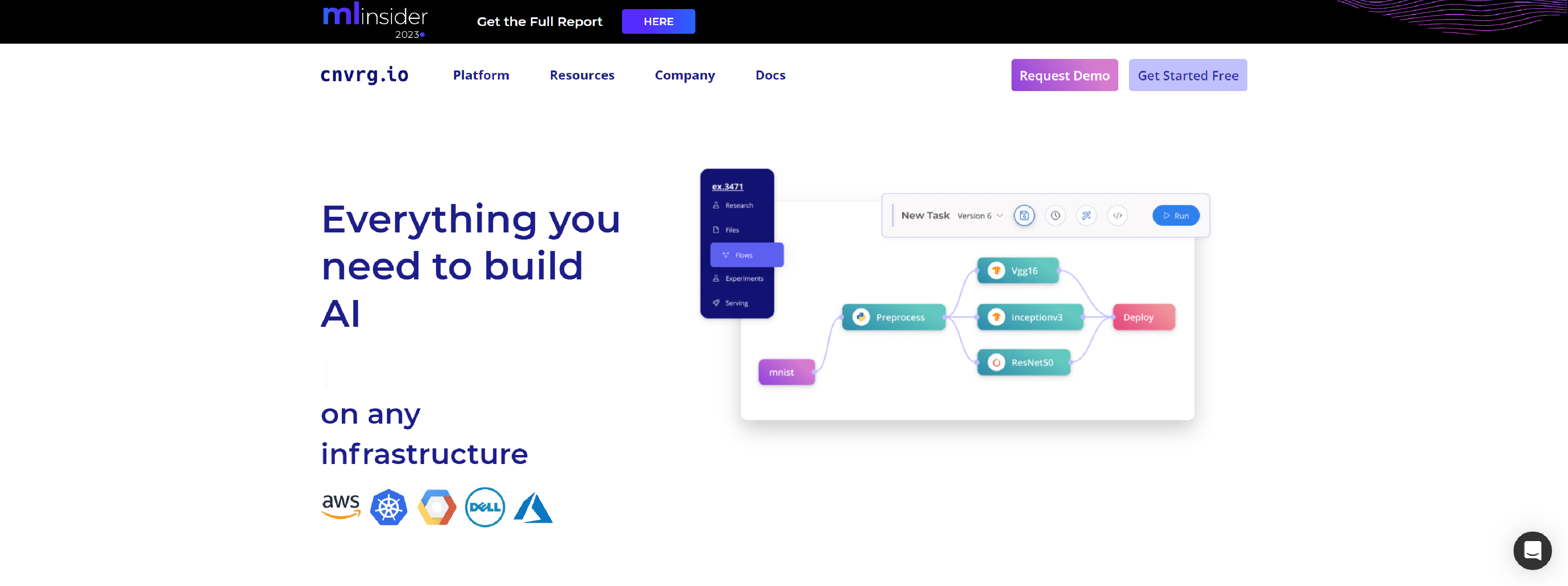
Cnvrg was built by data scientists, for data scientists to streamline the machine learning process, so they can focus less on grunt work and more on the real magic – algorithms.
- Integrated and Open Machine Learning Stack
- Scalable, Reproducible ML Pipelines from Research to Production
- Production-ready ML Models Built for Performance
- Extend Resources with Multi-Cloud and Hybrid-Cloud Capabilities
CLEAR
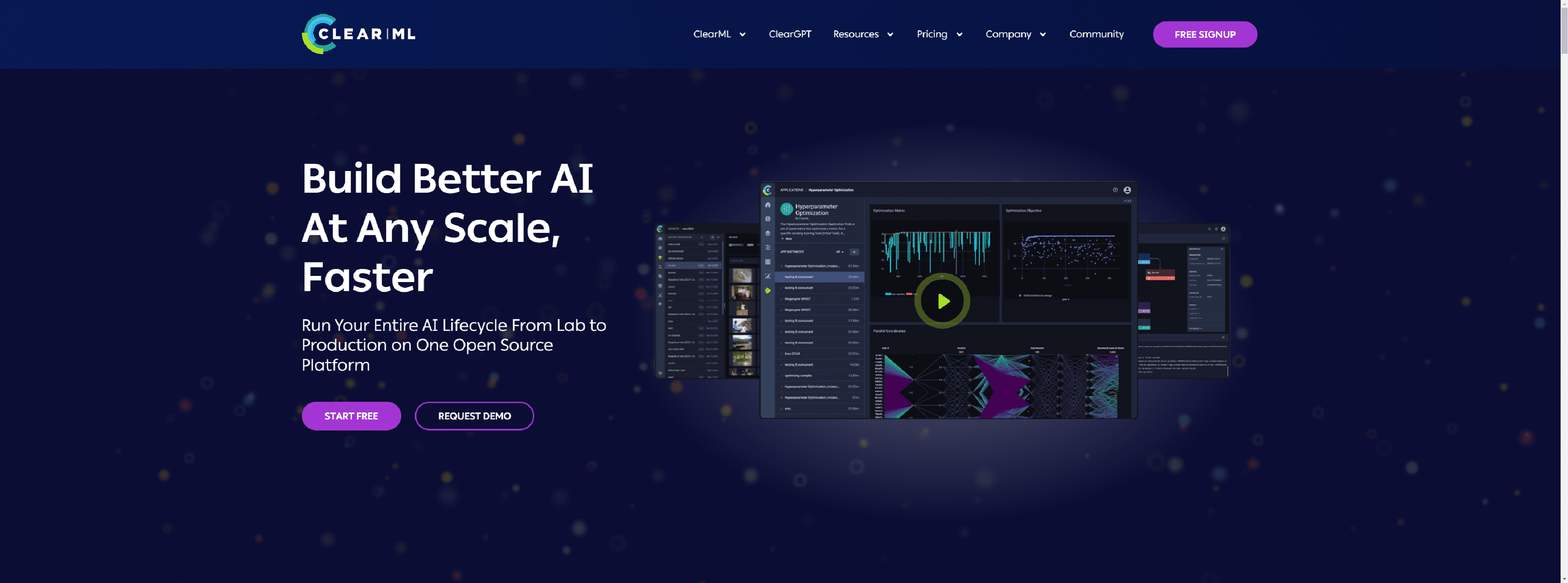
Easily develop, integrate, ship, and improve machine learning models at any scale with ClearML.
- Open Source and Flexible
- Automagical Orchestration
- Scheduling & Optimized Compute
- Goodbye Silos. Hello Real-Time Collaboration
- Enterprise Complexity Simplified
ENFINT
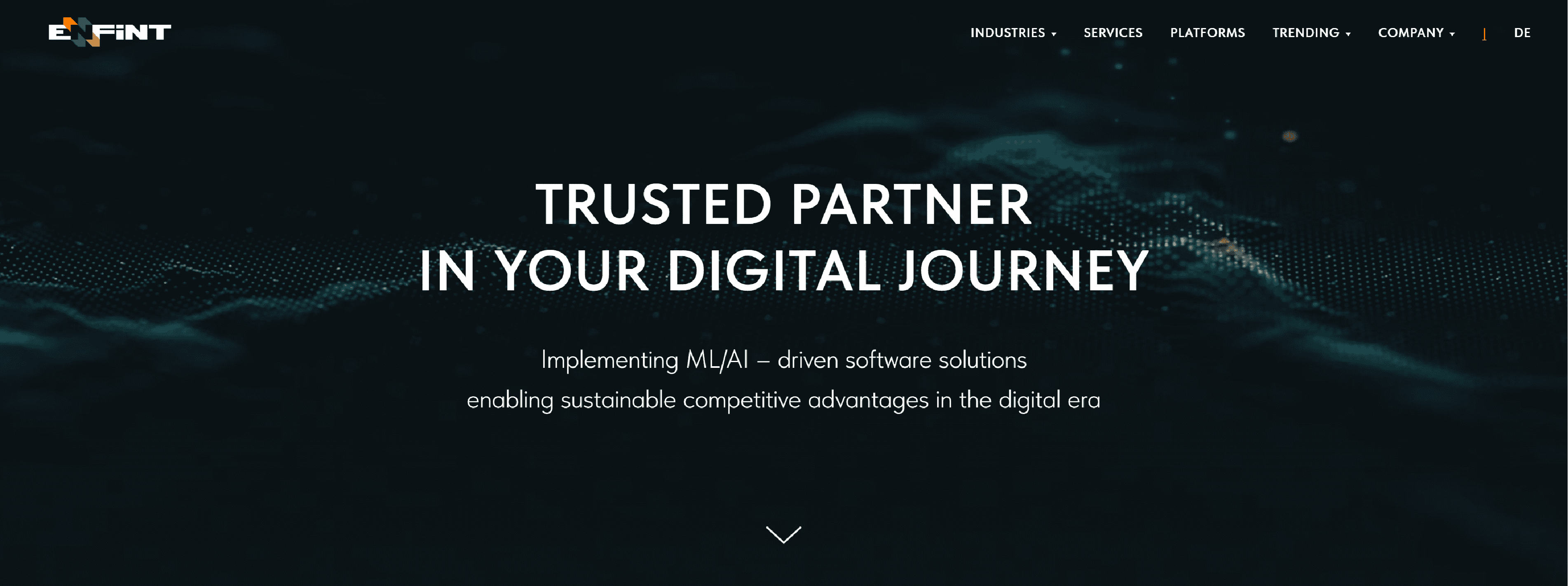
ENFINT MLOps Platform helps business offering full lifecycle of DS/ML projects development and operations.
- Configure projects to solve your business challenges
- Configure notebooks for your team based on their needs and project requirements
- Develop with Jupyter, VSCode and RStudio
- Track and maintain production models in real time
AKIRA
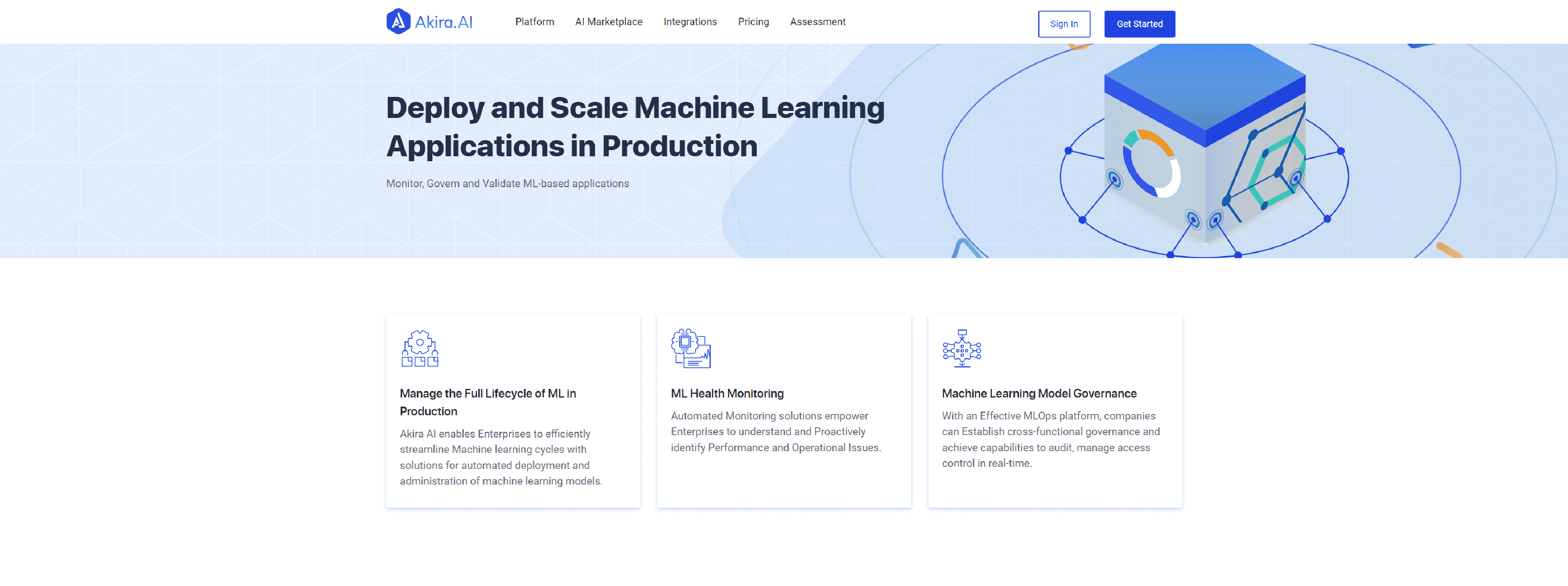
Accelerating Generative AI and MLOps Adoption For Enterprises with Secure, Customizable Edge AI and Decision Intelligence Platform.
- End-to-End Machine Learning orchestration
- Visibility and Security
- Productionizing Machine Learning Models with Containers
- Flexibility To Adapt
SOLUTIONS.XEBIA
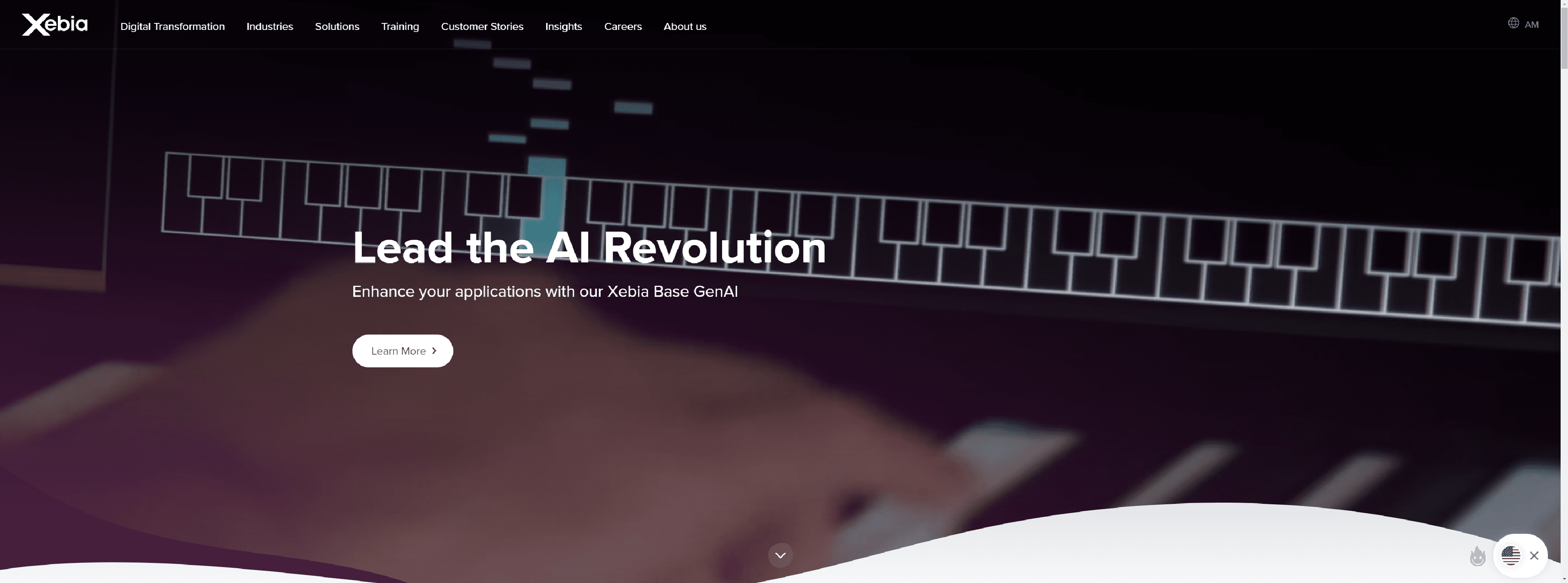
Leverage the Xebia MLOps Platform for tailored data and machine learning solutions.
- Setting the Standard
- Short Time to Market
- Business Value
- Easy Integration
WANDB
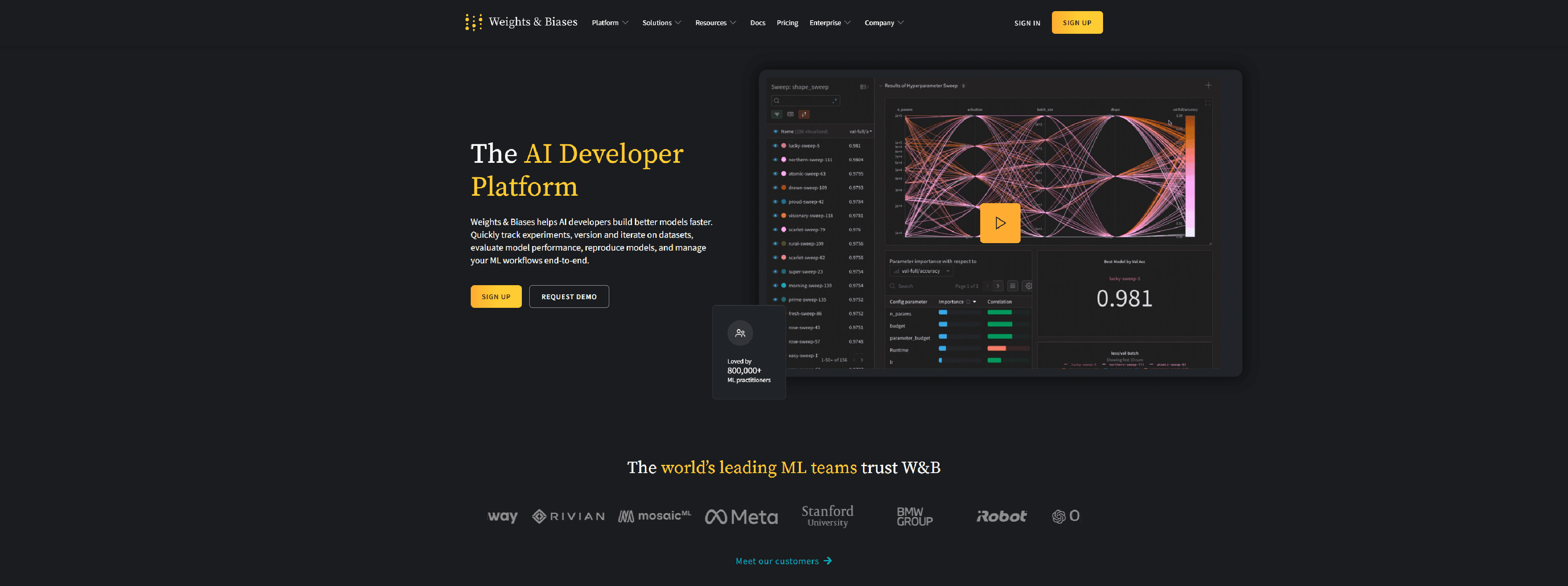
The Weights & Biases MLOps platform helps AI developers streamline their ML workflow from end-to-end.
- Integrate quickly,track & version automatically
- Visualize your data anduncover critical insights
- Improve performance so you canevaluate and deploy with confidence
ADDEPTO

Addepto – boost your machine learning projects with an MLOps platform, unlocking exceptional efficiency and achieving outstanding business results.
- Scalable, maintainable, and secure MLOps platform
- MLOps Platform and Databricks
- Experience a game-changing transformation with the MLOps Platform
- We are a fast-growing company with the trust of international corporations
DATAROBOT
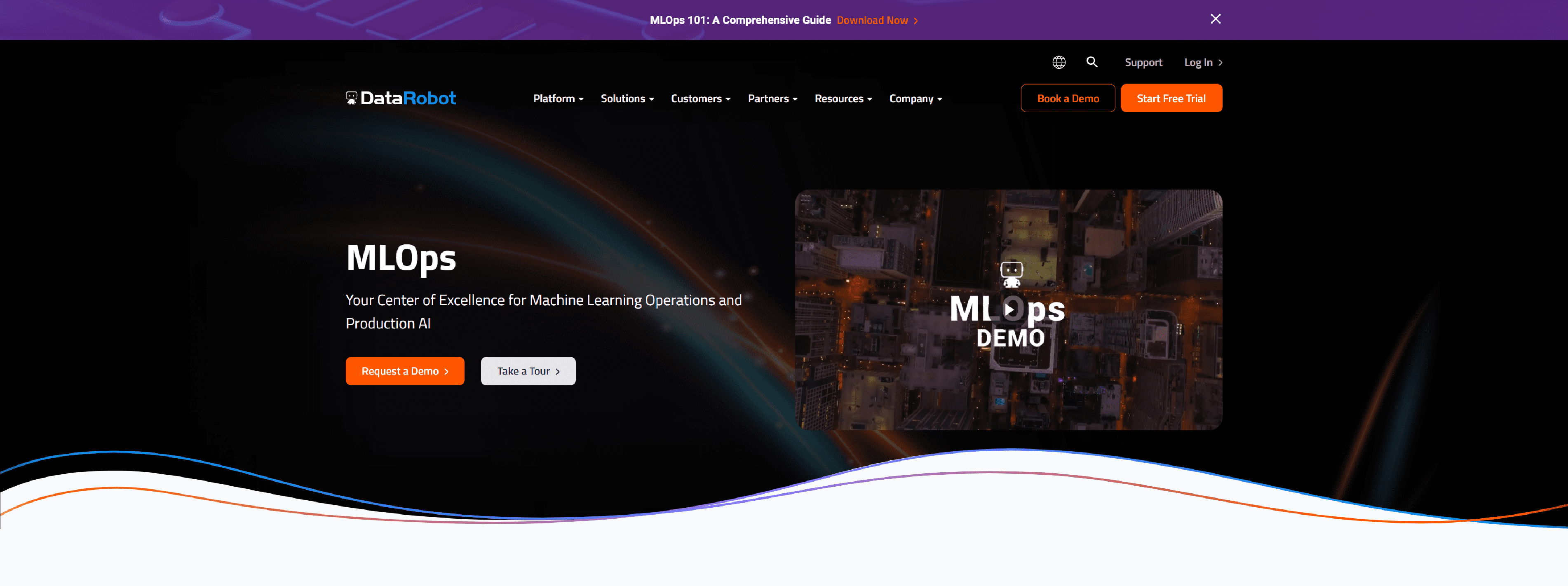
DataRobot MLOps is helping to increase AI value by automating the deployment, optimization, and governance of machine learning applications.
- Monitor Your Existing Models in Just a Few Lines of Code
- Build and Run Your Models Anywhere
- Embedded Governance, Humility, and Fairness
- MLOps 101: The Foundation for Your AI Strategy
TREDENCE

Tredence’s Machine Learning Operations (MLOps) platform, ML Works, to revitalize enterprise ML ecosystem, fast track model management and reduce outages.
- Operationalizing MLOps
- Wide array of MLOps accelerators
- Platform & product partnership for seamless pluggability
PICSELLIA
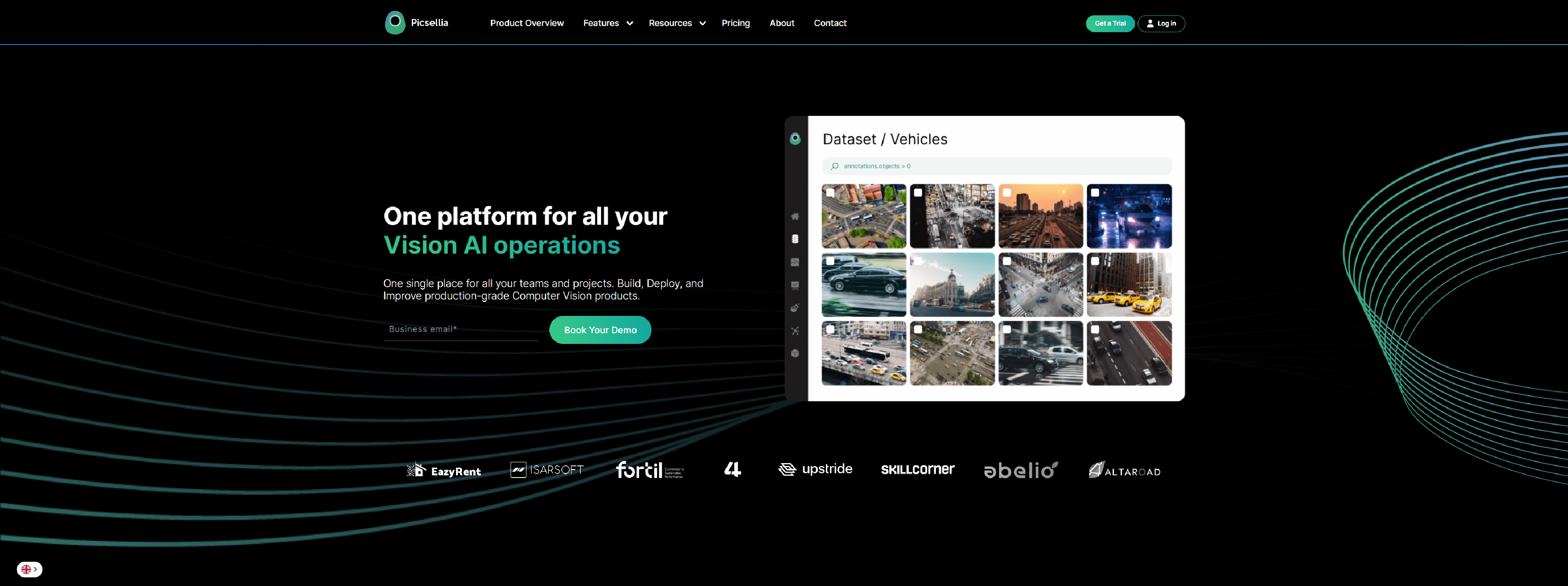
Picsellia – integrate every stage of your computer vision project’s life cycle with one complete MLOps development stack.
- Data Management
- Experiment Tracking
- Model Deployment
- Model Monitoring
- Automated Pipelines